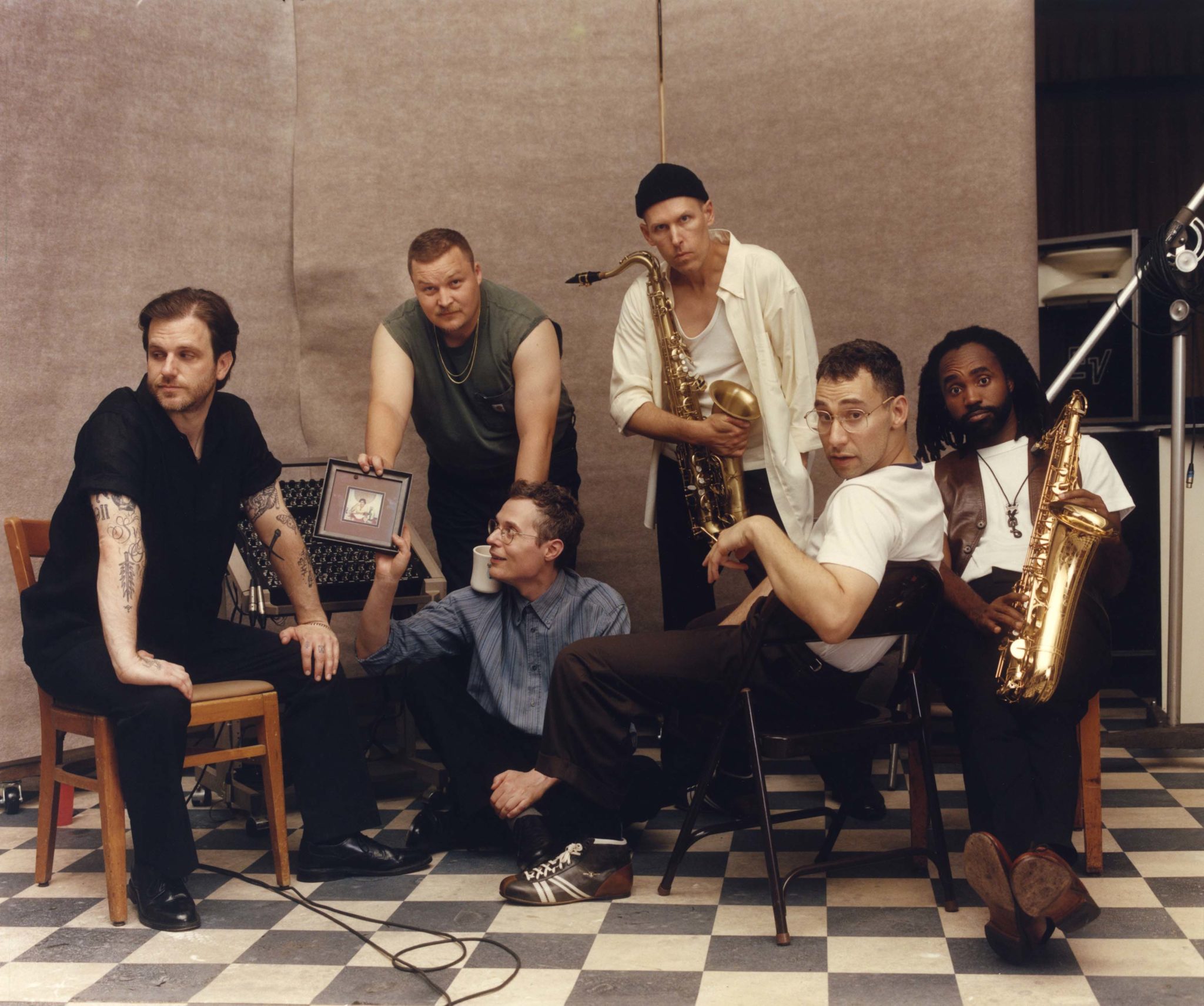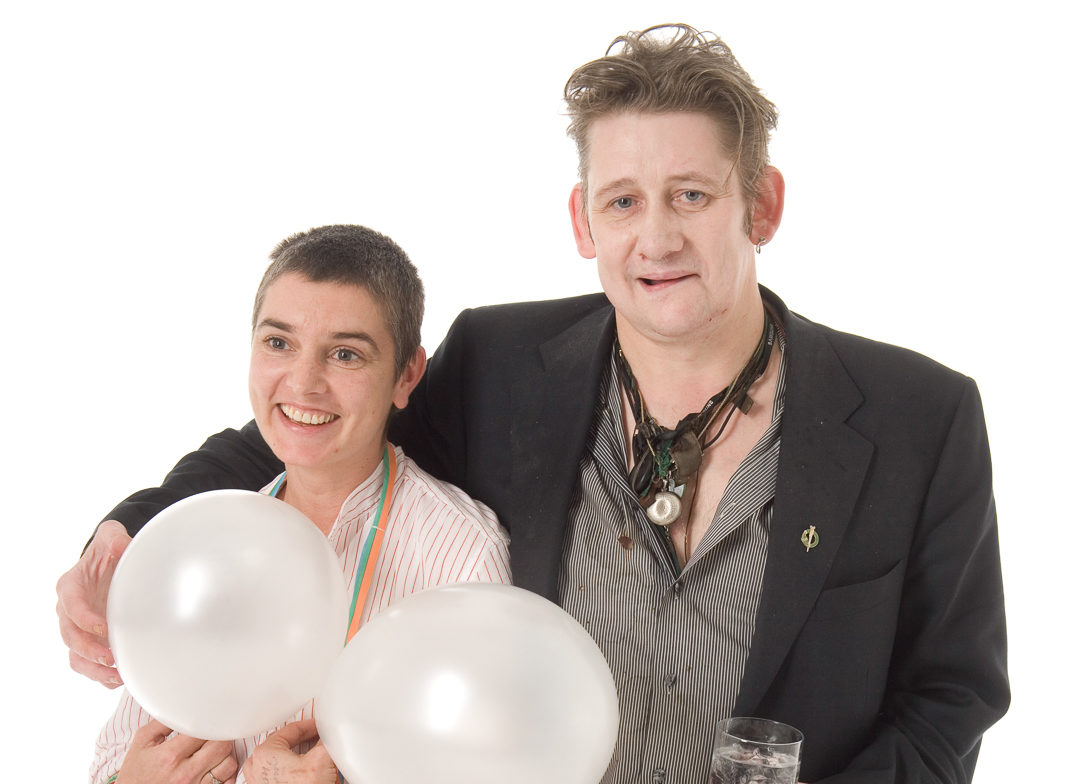- Music
- 27 Mar 24
Jack Antonoff: "I've always wanted to make an album in Ireland"

As a producer, he’s established himself as a defining force in modern pop – building close creative ties with Taylor Swift, Lana Del Rey, Lorde and more across a globe-conquering series of records. Now, as he returns with his band Bleachers’ new album, Jack Antonoff talks collaborating, learning to live “outside the lens of grief” – and his love for Sinéad O’Connor and Shane MacGowan.
Decades from now, you’ll take a retrospective deep-dive into the pop music of the 2020s through whatever augmented reality streaming service that’s dominating the music industry at the time, and quickly come to the conclusion that Jack Antonoff was everything, everywhere, all at once.
His production and writing credits read like a who’s who of the modern music industry, with heavy-hitters like Taylor Swift, Lana Del Rey, Lorde, Florence + The Machine, St Vincent, and The 1975, having all teamed up with the New Jersey native in recent years, usually for multiple projects. His creative connection with Taylor and Lana is particularly strong – working with the former on every album since her critical breakthrough 1989 in 2014, and the latter on some of the most lauded LPs of her career, including Norman Fucking Rockwell! (2019) and Did You Know That There’s A Tunnel Under Ocean Blvd (2023). He’s been suitably recognised for this behind-the-scenes work too, winning Producer of the Year at the Grammys for the past three years running.
Of course, Jack’s talents also extend to the other side of the recording desk, whether as a member of his former bands Steel Train and Fun (who took over the world in 2011 with ‘We Are Young’), or as the central mastermind behind his current outfit, Bleachers, who’ve returned this month with their fourth album. In the days leading up to the release, he tells me how he’s been staying grounded.
“Whenever there’s a lot going on, I like to try to be in the studio,” he remarks. “I like to be present for new ideas, because I get a lot of ideas when things are coming out. But it’s not a concept that works well in reality – because then I start to fill up my days, while trying to be at the studio at the same time.”
Is that a nerves-related thing?
“I think it’s a nerves thing,” he considers. “I feel so comfortable in the studio. It’s a place that helps me understand how I’m feeling. But it’s also connected with work, so it’s weird!”
The new album, Bleachers, is the ‘80s-indebted pop-rock band’s first since moving to the independent label Dirty Hit – also home to Jack’s previous collaborators The 1975. If the label change suggests the beginning of a new chapter, so too does releasing a self-titled project, four albums in.
“It was just always self-titled in my head,” Jack tells me. “It was just the way I felt when I was writing. For the first time in my life, it feels like I’m writing from right now, instead of this crazy obsession with the past and the future.”
Although he describes his music-making process as an “all natural” thing, with little planning involved, various aspects of Jack’s life seeped organically into Bleachers – including, most notably, his marriage to actor Margaret Qualley last year.
“The thing that’s so easy about it is also the thing that’s so scary about it,” he says of his songwriting. “You can’t decide what you’re going to say. If you try to, you won’t have very good songs. You have to let them just come out. So all that stuff started to make sense, in the music – to hear how much I was reflecting on being in love... And reaching a point in life, which also dovetails into some of my collaborations and my band, where you have these deepening relationships, and what can come from that.”
Grief also continues to inform Jack’s music – having lost his younger sister to brain cancer when she was just 13.
“I typically have a light feeling, and then I find a very intense thought around it,” he explains. “And I found myself a little bit more conversational and light than I’ve ever been. But the deep thought under that, which became a huge component to this album, was: when you start to live your life outside the lens of grief, are you letting them go?
“And what does that mean? How would they want you to live? How do you deal with the duality of trying to move on and have a life, but all the terror of not carrying someone’s memory everywhere, all the time? That became the more sad, stressful component to the album.”
Despite those deeply personal themes, close collaborative ties run throughout the LP, including co-writes with Lana Del Rey, Florence Welch, and Aaron Dessner.
“I felt like, the more I expressed my biggest fears, the more I embraced the community around me,” Jack reflects. “That concept of the deepening of relationships goes a long way for me. It all depends on where you feel inspired and valuable. My music, and my band, and the records I make, have always been about going deeper and deeper. I’ve noticed that, when I go further down a road with someone, something really special happens. So I chase it.
“Maybe one day that changes, and I’ll need to find myself in situations with people I don’t necessarily understand. But at this moment, I feel really connected to what people can do when they go further and further together.”

Bleachers by Alex Lockett
Whether he’s working with Taylor or Lana, or on his own projects, Jack is guided by an inherent confidence in his own creative vision. Where does he reckon that came from?
“I have no idea,” he admits. “But I know that I always had it. I can always hear when something is right to me – since I was 12 or 13, writing my first songs. I just know when it has that feeling… And I’ve spent my whole life trying to articulate what that feeling is… I’ve sort of given up now! But I know when I hear it, and I really know when I don’t. I spend so much of my time chipping away, looking for that.”
Is there a strange bit of pressure that comes with having such a strong influence on the pop music that’s going to define this era, when people look back on it in the future?
“It’s funny, I don’t think about it a lot,” Jack reflects. “I think that’s why I stay in the studio so much, and maybe even why I’m trying to be there more right now, with things getting a little crazy. They’re such personal letters, all the songs on the albums, no matter how big they get. And sometimes, understanding the reach that they have can feel freakish.
“When I think about the songs, and the productions, and the tours… These are thoughts that grow into new thoughts, and excite and amaze me, and fill me with inspiration. If I think about the scale of how many people are hearing these things, I feel really proud – but that’s not what makes me want to write a song.”
Of course, as he’s keen to point out, that kind of reach isn’t “a bad thing – it’s an amazing thing.”
“For most of my career I struggled,” he resumes. “I went on tours, and nobody came to the shows for a very long time. And no one heard the albums. So it’s not a lack of gratitude. It’s more about understanding, in my day-to-day life, where the songs come from, and staying focused on those places.”
One space that Jack continues to draw inspiration from, is Irish music.
“Irish music is so joyous and hopeful, and so sad at the same time,” he remarks. “It reminds me a lot of New Jersey music, and the music I make. A lot of my favourite music is Irish music. Shane MacGowan and Sinéad are two of my favourite artists of all time, and will always live in my soul.”

Sinéad O'Connor and Shane MacGowan. Copyright Mick Quinn.
Were both acts always on his radar?
“Sinéad, always – everyone plays her music where I grew up,” he tells me. “Shane… He was a little bit more when I started to get into the punk scene in New Jersey. There was this great reverence for Shane’s songwriting, and how he was able to present all this darkness with all this joy.
“I’m obsessed with this idea – which to me is the heart of Irish music – that I can be with my community, and be celebrating, and at the same time, be mourning,” he continues. “There’s a great amount of hope, but there’s also a great amount of reality, and darkness. I love that in Irish music, the two can live together, in literal harmony.”
Although he hasn’t yet had the chance to travel to Ireland and explore those influences properly, he tells me that he’d “like to make an album there.”
“There’s very few places in the world I want to go to make an album,” he states. “But I’ve always wanted to make an album in Ireland – just because I’ve always felt like this grand hope that I have inside me, and this endless mourning, would be understood there.”
Until then, Jack’s deeper understanding of himself and the world is deeply tied up in his relationship with music – despite tongue-and-cheek references to religion sprinkled throughout the new album.
“I see music, in many ways, as my church,” he says. “All the stories that people tell about faith and God and religion – the closest thing I have to that is my band.”
Will music always play that role in his belief system, does he think?
“It does right now,” he considers. “But all these things are so fleeting – so you just believe in what feels natural to you.”
• Bleachers is out now.
RELATED

- Music
- 08 Mar 24
Album Review: Bleachers, Bleachers

- Music
- 22 Feb 24
Bleachers release their new single 'Me Before You'
RELATED

- Music
- 02 Aug 22
Carly Rae Jepsen announces sixth album The Loneliest Time

- Film And TV
- 07 Jul 22






